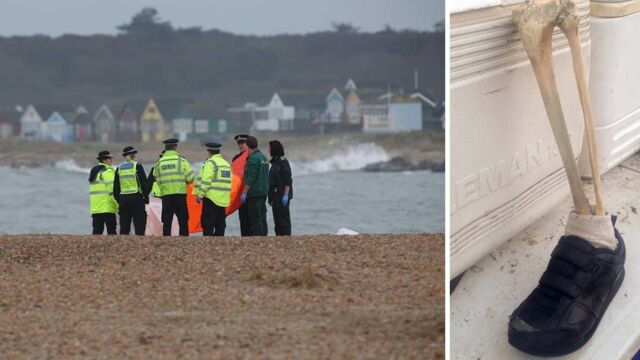For Canadian Mike Johns, what started out as a typical walk for out on the beach with his pet Rottweiler quickly led to a rather gruesome discovery. His dog initially spotted an object that did not appear to be any normal wreckage embedded within the kelp of the shoreline. Upon further inspection by Johns, he confirmed that in fact this was no average find... it was a leg, with foot and sneaker still intact.
Discover our latest podcast
While officials are currently examining the remains and a formal investigation has been opened, residents on the west coast are relatively calm and by no means shocked by the findings. Bizarrely enough, this isn’t an unusual occurrence and inhabitants have actually been briefed on how to properly react should the come across any washed up body parts.
A grand total of 13
The very first case of this nature occurred in August 2007. The official investigation went on to prove that the foot had belonged to a man who had gone missing 3 years prior in 2004. Since then, numerous feet were found washed ashore across the province of British Columbia. Prior to the most recent and 13th discovery, it had been nearly two years since the previous appendage had been found.
While some feet have been positively identified with the use of DNA and anthropological analysis, there still remains some mystery surrounding a few of them. With the addition of the most recent found foot, five out of the thirteen rest unidentified.
Mysterious circumstances
The exact reasoning behind how these body parts keep drifting ashore in Vancouver is still yet to be determined, with many different hypotheses floating about. Outlandish theories ranging from discarded pieces from a serial killer to remnants from the casualties of the 2004 tsunami that shook Southeast Asia.
However, the most commonly accepted explanation is also the least exciting. “Sad as it is to think about, that means bodies are going to end up in the water for one reason or another (accidents, suicides and perhaps murders come to mind),” says Mark Memmott of NPR. When considering the icy cold conditions of the water, it’s no real surprise that the feet are more well preserved than one would expect.
"There's no reason to believe that they (the cases) were connected in any way," says BC Coroners Service spokesperson Andy Watson. However, we’d like to believe the opposite – it’s a little more exciting that way.















